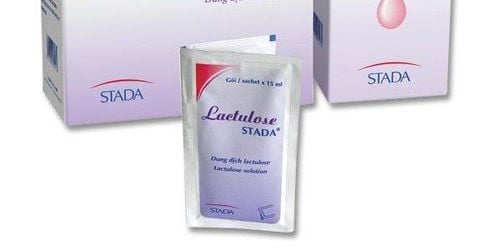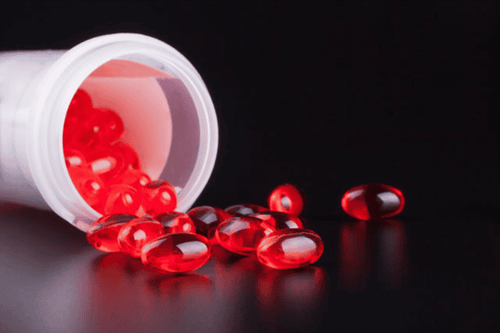This is an automatically translated article.
Sennosides are used to treat constipation. The drug is prepared in many forms for use such as tablets, capsules, powders, syrups... to help patients easily choose.1. What are Sennosides?
Sennosides is a laxative. Medicines may also be used to clear the bowels before a bowel exam or surgery. Sennosides are known as stimulant laxatives, which work by keeping water in the intestines, creating bowel movements.2. How to use Sennosides?
Take Sennosides by mouth exactly as directed by your doctor. If the patient is self-treating, follow all directions on the product label. If you have any questions that need answers, ask your doctor or pharmacist for more information. If the patient is taking the chewable tablet form, chew each tablet thoroughly and swallow. With Sennosides in liquid form, measure the dose carefully using a special measuring device or cup. The dose of Sennosides is based on an individual's age, medical condition, and response to treatment. Do not increase your dose or use Sennosides more often than directed. Do not take Sennosides for more than 7 days unless directed by your doctor. Serious side effects can occur with the misuse of Sennosides. It can take about 6 to 12 hours for Sennosides to work (to cause bowel movements). Tell your doctor if symptoms of constipation persist, get worse, or develop bleeding from the rectum.3. Note about Sennosides side effects and precautions when using
3.1. Undesirable effects Possible side effects include: Stomach pain, abdominal pain or cramps, nausea, diarrhea or weakness. If any of these effects persist or get worse, tell your doctor or pharmacist right away. Sennosides may cause a patient's urine to turn a reddish brown color. This effect is not harmful and goes away when the medication is stopped. Contact your doctor right away if any of the following serious side effects occur: Nausea, vomiting, persistent diarrhea; cramps, muscle weakness; irregular heartbeat, dizziness, decreased urination, mental or mood changes (such as confusion). Allergic reactions are very rare, but if you notice any of the following signs of a serious allergic reaction: Difficulty breathing, hives, swelling or itching (especially of your face, tongue, or throat) ), severe dizziness, contact your doctor immediately. The above is not a complete list of all unwanted effects that may occur when using Sennosides. If you notice signs of other effects not mentioned above, contact your treating doctor or pharmacist.
Đau bụng, tiêu chảy là tác dụng phụ có thể gặp khi dùng thuốc Sennosides













